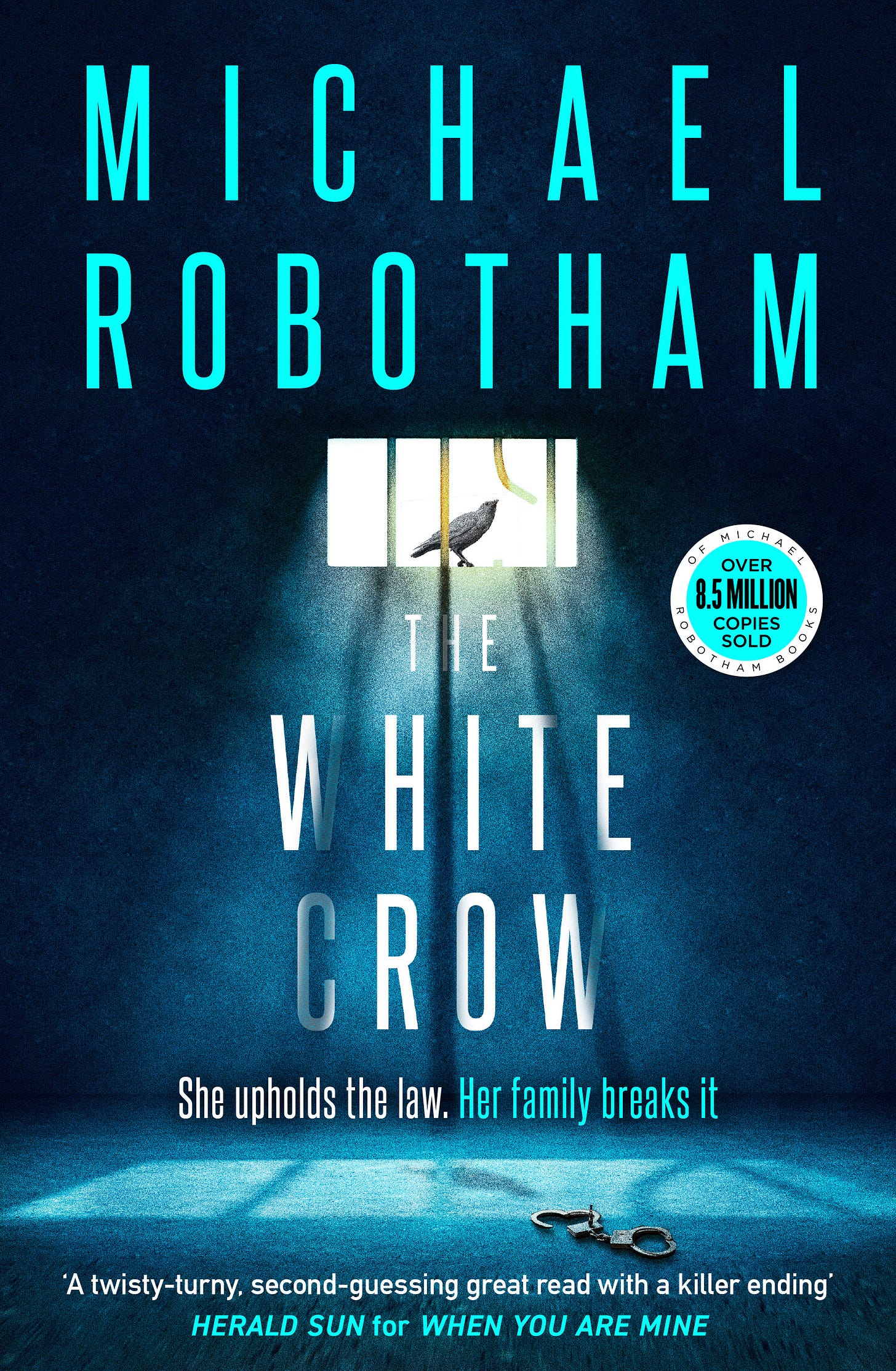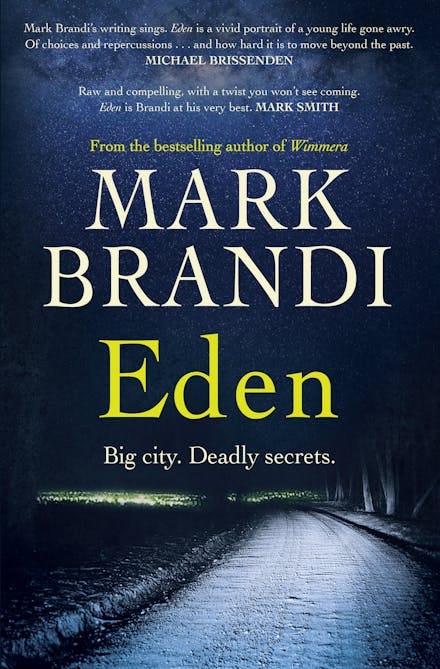We’ve reached that time of year where we’re all asking—how did we reach this time of year?!
And if you’re like me, you’re having your annual crisis of conscience, wondering why you haven’t achieved what you wanted to, or why you haven’t ticked more off that list you penned with the utmost confidence in January.
I had three main goals for 2025:
Write (more)
Read (widely, rather than just ‘more’)
Enjoy fatherhood. Embrace the chaos of a three and (almost) one year old
I’ve done all of these, maybe not as intrepidly as I wanted to. But that’s OK. That’s why we have Substack’s, right? To have mid-year check-ins and hold ourselves accountable, and get back on track.
I’ve read a lot of great books this year. Seventy-nine in total, 49 of which were published (in Australia) in 2025.
For the sake of brevity, and the sheer challenge of it—
(remember, you’re talking to a guy who published a Top 23 of ‘23)
—I’ve capped my favourites at five. Which was an almost impossible task. One I struggled with for days. But at the end of my process—hastily scrawled notes, meandering walks at lunchtime, ponderous reflections stuck in traffic on the way home from work—I’ve got what I consider the crème de la crème of my 2025 reading. So far.
I Want Everything by Dominic Amerena
I said in my review back in April that the literary thriller scene would have to up its game if it was going to match Dominic Amerena’s debut this year. So far, nothing has come even close.
I Want Everything is exceptional; whispers of Kuang’s Yellowface and Korelitz’s The Plot, but without their blatant violation of psychological plausibility and descent into melodrama, as its narrator wades into the moral grey—then submerges totally into the black—to fulfil his literary ambitions.
He is a writer in need of stimuli; something to jolt him out of his creative torpor. A chance encounter at his local swimming pool provides exactly that, when he recognises an elderly woman as one of Australia’s greatest and most enigmatic writers.
Brenda Shales is an author whose two books, published in the 1970s, permanently seared her name onto the landscape of Australian literature. Legal controversies after her second book lead to her retreat from public life; then total vanishment. Her books are still read today; her disappearance has only augmented her legend.
Her story—the story of what happened after her success—is ripe for the telling, a sure-fire bestselling hit. It wouldn’t just kickstart a writing career; it would make it. And so, through a lie of omission, which quickly turns into unequivocal conscious and continued deception, our narrator finds himself face-to-face with Brenda, and forging a relationship founded on shifting sands.
Where the novel goes from there—well, it’s best to go in oblivious. Suffice to say, even the most savvy readers will be in for a shock as Amerena unspools the facts, slices through the web of lies, and builds his story to an incredible and astute crescendo. Audacious and mesmerising. Read it.
Nesting by Roisín O’Donnell
There’s a sprinkle of commercial glitter to this story about a pregnant woman with two little girls escaping her emotionally abusive husband, and navigating life outside his control. And that’s exactly what makes Nesting so great. Roisín O’Donnell tackles difficult subjects with real emotional heft—but never forsakes momentum for protracted interiority. This is high-voltage family drama that somehow stays the right side of melodrama.
When Nesting opens, Ciara’s husband, Ryan, hasn’t physically assaulted her—yet. But the threat of violence looms. This is man prone to dark mood swings. He gaslights, he undermines, he shouts and screams, and controls Ciara financially. And finally, she’s had enough. She can’t live like this. More than that—she can’t allow her children to live like this, under a cloud of menace. So a pregnant Ciara absconds with her children, and her paltry savings, and reaches out to social services for help.
But bureaucracies love to keep people adrift in a cycle of baffling paperwork, and hoops to jump through. Nothing is ever simple. And so, Ciara, Sophie, and Ella find themselves living in emergency accommodations in a hotel. Isolated from her family living in England, with Ryan breathing down her neck for custody of the kids, that fresh start Ciara hoped for seems impossible.
Nesting is utterly propulsive, and terrifyingly real. O’Donnell’s characterisation never takes a back seat to polemic, which would be forgivable, given her own experiences. This grips from start to finish.
The White Crow by Michael Robotham
It feels like Michael Robotham had a lot of fun writing The White Crow.
There’s something joyfully effortless about his latest thriller. It doesn’t move so much as it glides, full-throttle, from start to finish, as he weaves an action-packed web of murder, kidnap, theft, and corruption, becoming as tightly-wound as a rubber band ready to snap. Robotham is always gripping—The White Crow might be his most purely entertaining novel since Life or Death.
It begins with young London police constable Philomena McCarthy—who we first met in When You Are Mine, alongside her notorious gangster father—spotting a child wandering alone in the darkness. While she takes the girl home, and discovers the aftermath of a brutal home invasion, Detective Chief Inspector Brendan Keegan is stepping through the door of a jewellers in Hatton Garden, tentatively approaching a man strapped to chair with an explosive vest strapped to his chest.
It will turn out these two events are linked, but if you think this is just the groundwork for a classic whodunnit, you’re wrong. It’s all just runway for a full-blown cops-and-gangsters extravaganza.
The White Crow has a lot of moving parts, and it’s Robotham’s gift as a storyteller that it’s all coherent, and the action—of which there is plenty—doesn’t’ disintegrate the story into hash, but in fact enriches it. There are few other writers out there who wield sound and fury so efficiently, and never at the expense of character. This is a thriller that works because of his experience and craftsmanship.
Cloudless by Rupert Dastur
A sublime debut novel by award-winning short story writer Rupert Dastur, Cloudless is an introspective family drama that shrewdly portrays the festering impact a young man’s decision to sign up for the military, and thus deploy to Iraq, has on his family.
As Harri’s parents navigate his absence from their lives, the fissures between them start to widen. Their farm on the hills outside Llandudno, North Wales—which has been in John’s family for generations—is on the brink of ruin, exacerbated by his gambling habit, the depths of which he’s so far managed to conceal from his wife. Emotionally and physically exhausted by life on the failing farm—never mind ever-present anxiety about Harri, and what the future hold for her unsettled younger son Rhys—Katrin finds comfort in the company of an old boyfriend, and soon starts a passionate affair.
An accumulation of quotidian betrayals inevitably precipitates cataclysmic ones that pull families apart. Dastur masterfully shifts between the perspectives of John and Katrin—and seldomly, but with great purpose, Harri and Rhys—as he leaps forward his narrative one month at a time, measuredly weaving together the secrets that each family member is grappling with.
Cloudless is one of those rare novels that will linger in my memory as a lived experience. Those are few and far between. It’s a slow-burning pleasure, thick with brooding tension. I wish I still worked in a bookshop—I would sell a copy to every single person who walked through the door. Never has a novel more deserved my big rubber stamp of approval.
Eden by Mark Brandi
This successor to Brandi’s debut Wimmera—in ways I won’t specify—possesses an aura of inevitability from the start.
Tom Blackburn has just been released from jail, having fulfilled his sentence without ever truly considering applying for bail. Even before his cash is stolen from the cheap motel room he’d planned to make his base, readers will likely identify the contours of this story.
We know men like Tom—however pure their intentions—rarely break free from the shackles of their past. The penal system chews you up, spits you out, then leaves its mouth open for your return. Left to fend for themselves after years of imprisonment, it’s no wonder so many return to the relative comfort of criminality; it’s all they know, and they’ve been offered no feasible alternative.
With only a few bucks left in his possession, Tom is destined to rough it on the streets. He knows that means the clock is ticking until he’s back in a cell. Not a matter of if, but when; desperation invariably corrupts the soul. But his luck seems to turn when a chance encounter leads to a job and somewhere to stay. It’s hard, physical work in a Melbourne cemetery, and he’s sure something underhanded is going on—but he’s willing to turn a blind eye. To go straight, a man with his kind of baggage sometimes has to divert into the black. But there are always consequences.
Eden is a masterclass of pared-down storytelling; an edge-of-your-seat literary crime thriller, and a compassionate portrait of a man struggling to overcome his past, who seeks a better future. It’s Mark Brandi writing at the height of his powers.












White Crow a great read l could not put it down and from memory ranks with your best - thank you and more like that please 📖
Great to get your top 5 and commentary thereon.l am pleased to already have your White Crow on the shelf for my next read. Your Cloudless will follow as I recall well your bookshop recommendations.l wish you were still at the bookshop and hope that you may kindly let us have a few more books from your 79 reads and l would be happy with titles ,authors and possibly brief comment.Many thanks l look forward to my next reads + best wishes 📚